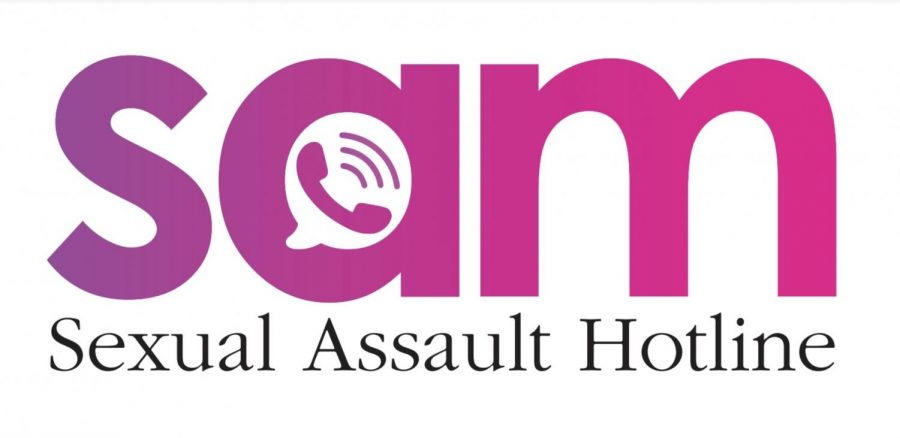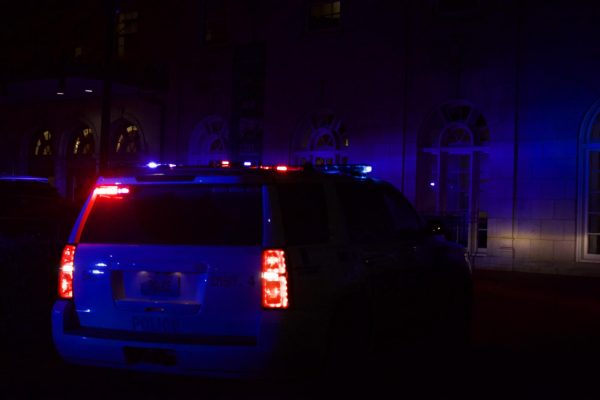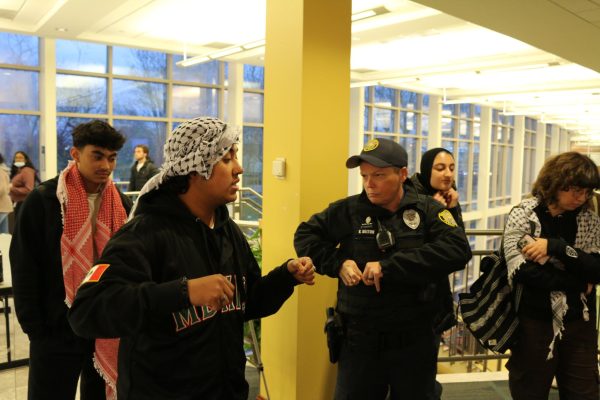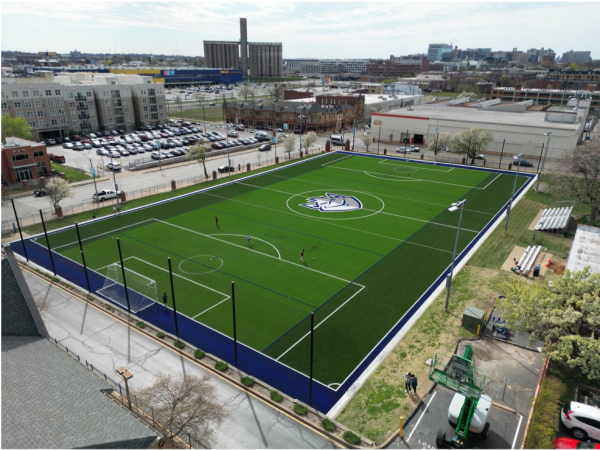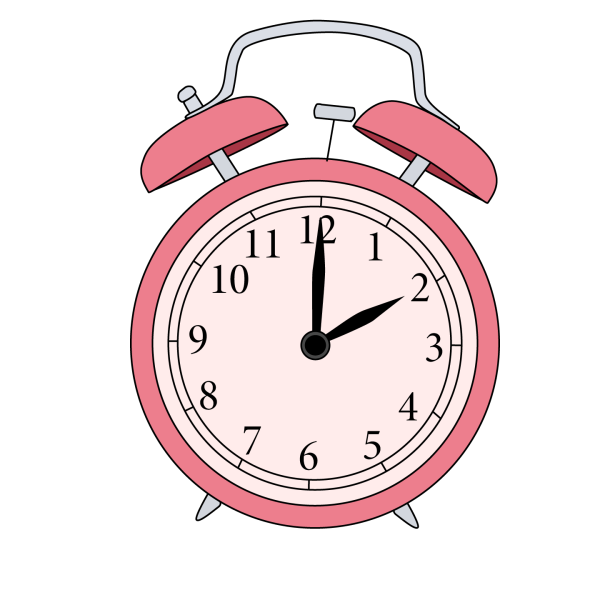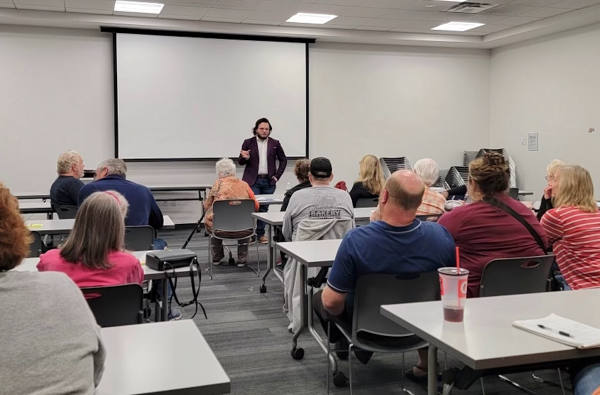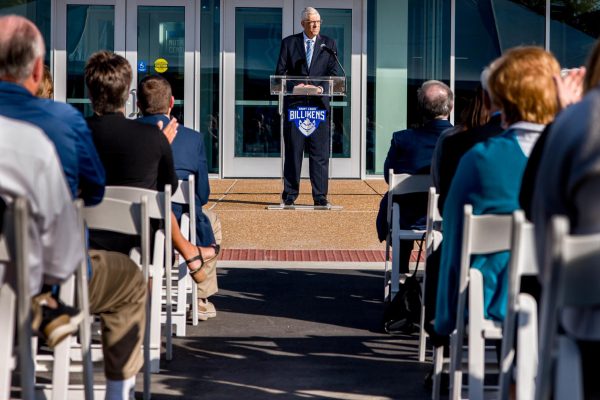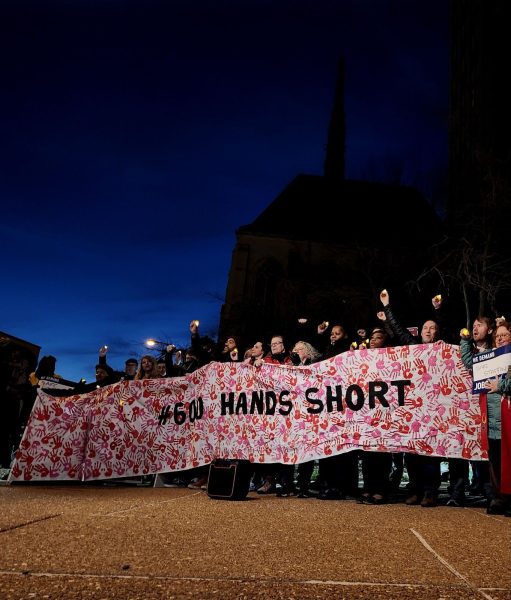Now Independent, Sex Assault Hotline Looks to Expand
The student-run anonymous sexual assault hotline SAM, now in its second semester, has seen rapid growth in both volunteers and callers as pandemic restrictions ease. Now, SAM is looking to ramp up its efforts at SLU and add chapters to other colleges across the country.
“It makes me happy to see that people are interested in SAM,” vice-chairman Mia Filipe said. “I think a lot of people are passionate about the cause.”
The group, now a nonprofit, has networked with other established organizations, such as a similar group at Washington University in St. Louis (WashU). SAM also met with the team behind the mobile app Unmasked, which is aimed at providing college students with mental health resources. Filipe said SAM, which was founded by SLU students, plans to expand to other universities in the next couple of years.
“We wanted to focus on first making sure we were really established at SLU and that people knew about us and that everything was going smoothly until we started branching out, but that is something we’re in the process of right now,” Filipe said.
SAM, which was officially founded in 2015, began running the hotline in the spring 2021 semester. The group, at first, not a chartered student organization (CSO), affiliated themselves with the University last year after a run-in with administrators over whether they could post flyers on campus, Filipe said. Initially, SLU said only CSOs could advertise on campus, and SAM went through the process of being such a group to comply with this rule.
Following further conflicts with SLU administrators, SAM retained the counsel of an attorney and SLU Law professor John Ammann, who offered to work for the group pro bono. Ammann helped the group register as a 501(c)(3) nonprofit with the Internal Revenue Service (IRS).
“Just by SLU itself, we were definitely a lot more well-respected once he was on board,” Filipe said.
SAM then signed a memorandum of understanding (MOU) with SLU, allowing them to advertise the hotline on campus, Filipe said. Their funding comes from state and federal grants and tax-deductible donations and profit-sharing events from corporations.
“It’s definitely been really rewarding, seeing how SAM has grown and seeing how we’ve grown to be respected,” Filipe said.
Being a nonprofit group, and having a lawyer on standby, has allowed the hotline greater freedom, Filipe said.
“It’s a lot of sensitive work, and there’s a lot of legal things surrounding that because for liability purposes, people don’t want to get in trouble,” Filipe said. “That’s why we have our own insurance, we have our own everything.”
Still, they have run into some snafus. Filipe recalled a recent incident where an officer of the Department of Public Safety (DPS) demanded SAM give them information the group had collected, seemingly unaware of the hotline’s independent status.
“It was just nice to be able to say, ‘Talk to our lawyer about this, because you clearly do not know what you are talking about,’” Filipe said.
According to mandatory disclosures made by the university under the Clery Act, there have been 18 incidents reported to SLU’s Title IX office this semester, including seven reported rapes. SAM has received far more calls than that, Filipe said, adding that SAM operators are trained to present all available options to callers without preference toward any option in particular.
“We’re first here to listen to what that person is looking for,” Filipe said. “It’s really going to be dependent on what the survivor is looking for, and we kind of just go step-by-step through there.”
Given the nature of their work and concerns over outside pressure from university or government officials, SAM does not collect personal information from callers, Filipe said. All callers remain anonymous, and when a person dials the hotline, their phone number is obscured from the other end.
The call is then taken up by one of the multiple volunteers via the program Google Voice. Operators also remain anonymous by group policy, identifying themselves to callers as only “Sam”. The only information taken down by hotline operators relates to the case specifically, information such as whether the caller was planning to seek counseling, Filipe said.
Operators are required to take 40 hours of training, completed through the video-conferencing application Zoom. In those sessions, operators are trained on identity-related factors, Filipe said, teaching them how specific issues may relate to people of color, members of the LGBT community, or male victims, for example.
“A really core principle and value to SAM is empathy,” Filipe said. “That’s really trying to take yourself out of your shoes and put yourself in someone else’s, no matter what that person is going through. And a big part of that is recognizing, ‘I may not understand what you’re going through, but I hear you and I’m going to try to help you to the best of my ability.’”
The hotline is active on Thursdays, Fridays, and Saturdays beginning at 10 p.m. and going to 4 a.m. the next day, and is active from noon to 4 p.m. on Saturdays and Sundays.ow Independent, Sex Assault Hotline Eyes Expansion
Your donation will support the student journalists of Saint Louis University. Your contribution will help us cover our annual website hosting costs.


